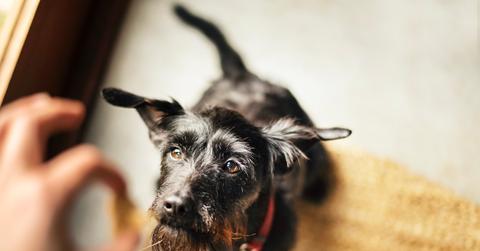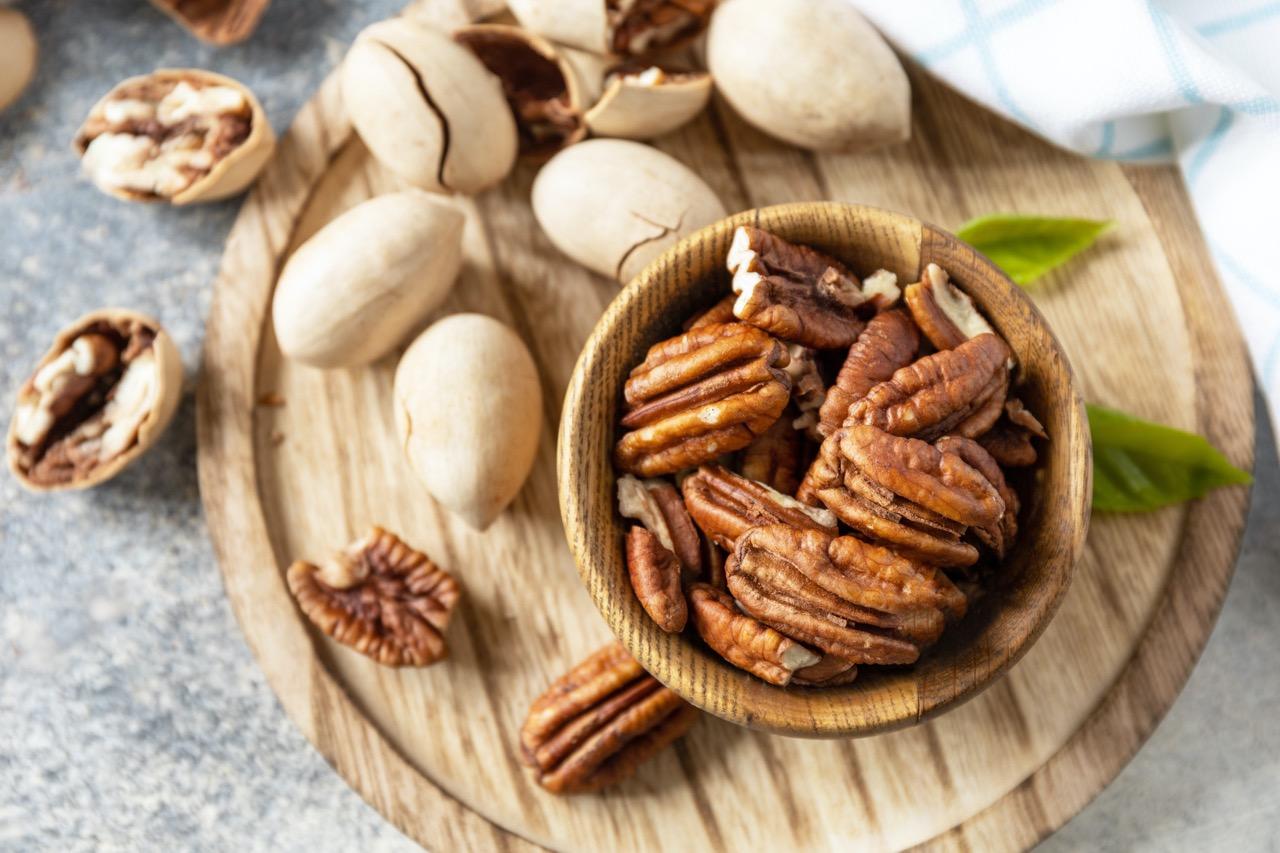Here’s 5 Reasons Why Your Dog Should Never Eat Pecans, From Vomiting to Liver Damage
Dogs can eat a lot of different things, but some foods should remain off-limits to ensure their overall health and safety.
Published April 25 2024, 9:34 a.m. ET

Pecans are an awesome snack full of health benefits. They are high in fiber, contain omega-3 fatty acids, and have a low glycemic index, which is great for managing blood sugar.
But can dogs eat pecans? Sadly, what’s good for us isn’t always the best for our pups. Keep reading to learn how pecans affect dogs and what nuts are dog-friendly.
Can dogs eat pecans?

We all know that dogs love peanut butter, so it makes sense to think that they can enjoy other types of nuts, too, and sometimes, they can. However, pecans aren’t safe for dogs to consume in any capacity.
Pecans have a few distinct properties that make them harmful to pups. First, they’re very high in fat — this can cause a painful stomach ache, which could result in diarrhea or vomiting, according to Pet MD. Not only are both of these conditions bad to begin with, but they can also lead to dehydration.
If your pet accidentally consumes many pecans, the high-fat content could also lead to pancreatitis, which is when the pancreas becomes inflamed. This condition should be addressed and treated right away.
Mycotoxins, produced by mold, are another risk associated with pecans. If a dog accidentally eats a pecan with mold (perhaps one found outside), it can have serious health consequences. Mycotoxins can lead to neurological problems like tremors and seizures, which could worsen over time and create long-term issues, according to The Spruce Pets.
Like many other items, pecans can be a choking hazard. They can be incredibly hard for dogs to digest due to their texture, and the shell can also cause problems like intestinal blockages.
If your dog consumes a pecan, you should monitor them closely. Watch for symptoms like lethargy, loss of appetite, vomiting, and diarrhea. Always consult your veterinarian to ensure your pet’s ultimate health and safety.
Can dogs eat nuts?

Technically, a few types of nuts are safe for dogs to eat in moderation. However, it’s best to avoid them in most circumstances due to the potential of additives and the risk of choking.
Peanuts, cashews, and almonds are the types that are considered to be less hazardous. Due to the previously mentioned risks, it’s still not a great idea to make these foods a regular part of your dog’s diet.
Every once in a while, a peanut or two is okay. Peanuts have some nutritional benefits — they are high in protein and fiber, which are essential for dogs. It might be worth considering different sources, especially considering the potential risks.
There are a ton of other great alternatives when it comes to providing your dog with protein and fiber instead of nuts. To add more fiber to your pet’s diet, foods like pumpkin and sweet potatoes are amazing and affordable. For more protein, try chickpeas, lentils, or peas.
At the end of the day, the most important thing you can do for your dog is keep them healthy and safe. Before feeding your dog anything new or changing their diet, it’s always best to exercise caution and contact your veterinarian beforehand.